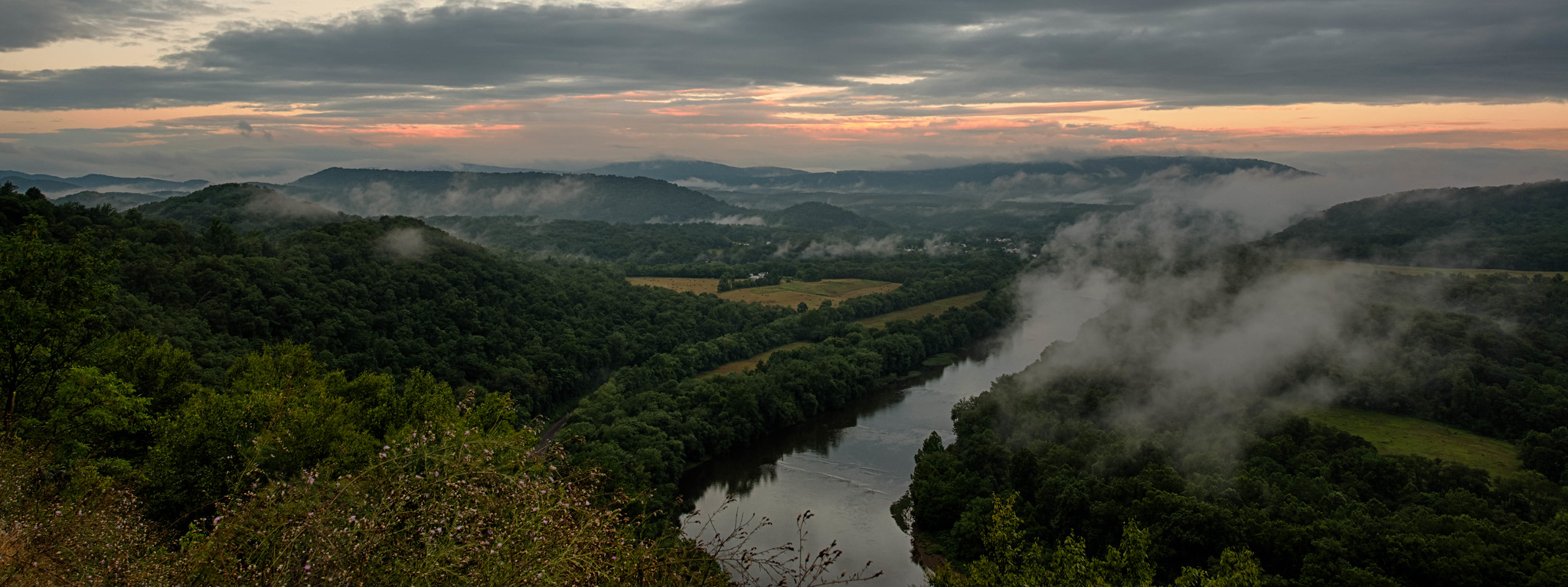
Mountain State Spotlight, a new nonprofit newsroom dedicated to accountability journalism, launched in West Virginia on Thursday. On opening day, the news site featured a slate of stories on inadequate internet access, holes in a program to feed the state’s children during school closures, and the first responders across the state still waiting on pandemic “hero pay” they were promised.
Co-founders Greg Moore, Ken Ward Jr., and Eric Eyre — formerly the top editor, award-winning environmental reporter, and investigative reporter at The Charleston Gazette-Mail, respectively — have cast Mountain State Spotlight as a civic institution, one they hope will derive its support and stories and raison d’être directly from the community. Moore will serve as executive editor and CEO while Ward will continue as a ProPublica reporter but contribute mentorship and investigative guidance as editor-at-large.
Mountain State Spotlight, which is in the process of becoming an independent 501(c)(3) group, has received financial support from the American Journalism Project, ProPublica, and Report for America as well as hundreds of individual donors. The emotional and operational support from its partners in nonprofit journalism has been just as important as the initial funding, Ward said.
“We have a team of people who are helping us to understand how to turn a bunch of reporters into a well-oiled machine that can do the stories that West Virginia needs but also raise the money and run a operation in a way that will make it sustainable,” Ward said. “That’s what every community needs, not just good journalists, but a good journalism organization.”
The co-founders are joined by four Report for America members, an engagement fellow, and interns. (Erica Peterson will come on as managing editor in October and the search is on for a political reporter and VP of operations and development.) Even at launch, Mountain State Spotlight is already one of the largest newsrooms in the state — a fact that you could let inspire or depress you.
All of this has come together impressively fast. In late February, The Charleston Gazette-Mail let Moore, then its executive editor, go. (A few months before he was fired, Moore had announced the newspaper had met its new publisher’s demand to double digital subscriptions ahead of schedule.) Within days, Ward followed him out the door.
Ward, who’d spent nearly 30 years at the Gazette, had helped to secure four Report for America positions and didn’t want to lose the chance to work with the emerging journalists, some of whom he knew were West Virginia natives like himself. For Report for America to agree to place members with the new outlet, though, the co-founders needed to have an organization by June 1.
“We could have done things differently. We could have spent six months or a year building up the organization, raising money, hiring a development director,” Ward said. “But I didn’t want to lose the staff of reporters — just phenomenal emerging journalists that are going to do incredible work here — so we were in a race.”
ProPublica, a nonprofit chasing investigative stories with impact, and the spirit of “sustained outrage” championed by the Gazette’s former publisher, W. E. “Ned” Chilton III, have served as inspiration from the site’s earliest days. For now, the site will focus on watchdog reporting and government accountability, rather than features or, say, coverage of West Virginia University sports. Ward also emphasized sustained journalistic attention and follow-up stories, arguing that sporadic reporting doesn’t yield solutions for entrenched problems.
“If you’ve found some injustice, you can’t just report about it once,” he said. “You have to keep coming back to it, and either what you’re doing is reporting about something somebody did about it, or you’re coming back to it because nobody’s done anything and you’re going to remind everybody that nobody did anything.”
One of those longstanding problems? The high percentage of West Virginians living without reliable internet. Mountain State Spotlight has published a piece on the issue, and it’ll figure into the news site’s distribution plans, too.
“I look at my mom, who lives here in Charleston, and regardless of the quality of her internet, she doesn’t really want to read it digitally. We have not only a lack of good internet access, but we also have a population that trends older, that is less interested,” Ward said. “Do we have all the answers to fix that? No. But in my experience in legacy media, the answer was to throw your hands in the air and say, ‘There’s not much we can do.’ Well, I don’t find that acceptable. We have to find ways to reach those audiences.”
One of those ways is partnering with local daily and weekly newspapers across the state, who will be able to publish Mountain State Spotlight stories for free. Another is meeting West Virginians where they are.
“It’s a heavy Facebook-using state. A lot of folks may not have great broadband internet access but they have a cell signal and visit Facebook on their mobile device,” Ward said. “I know we’re all supposed to think in the media world that Facebook is evil, but if that’s where some of our potential readers are — and where the West Virginians are who need our stories — then we need to go there and more effectively use that platform. I haven’t seen a media organization in West Virginia who has really harnessed that power yet. We’re going to try to do that.”